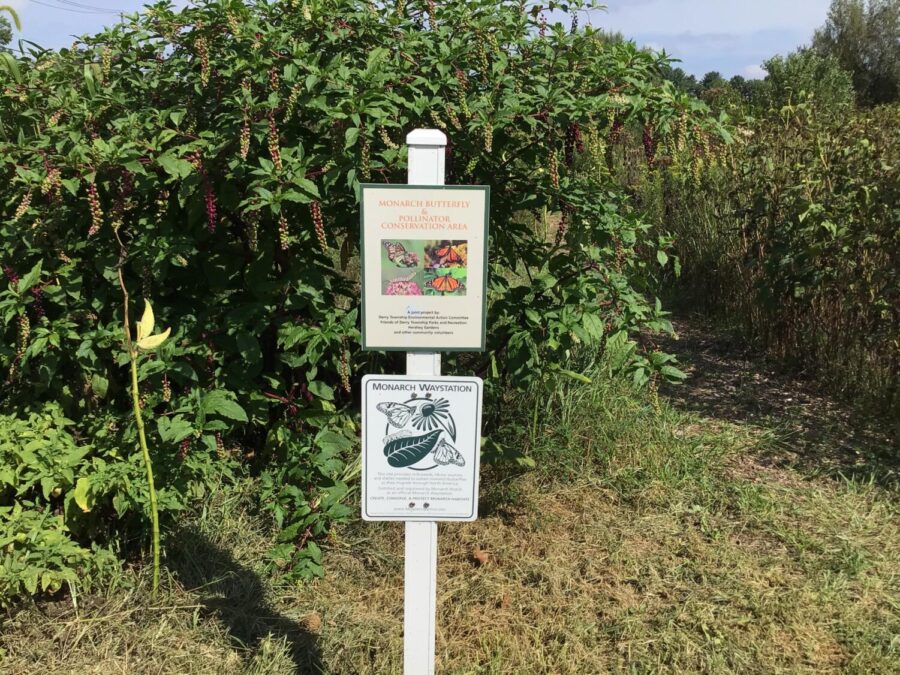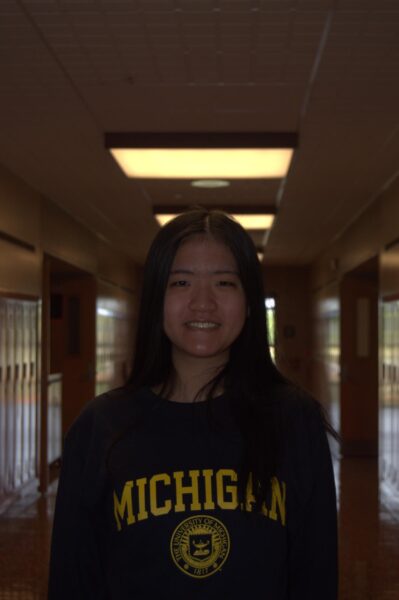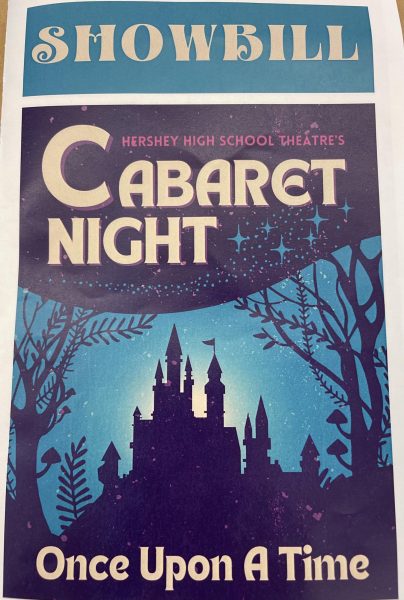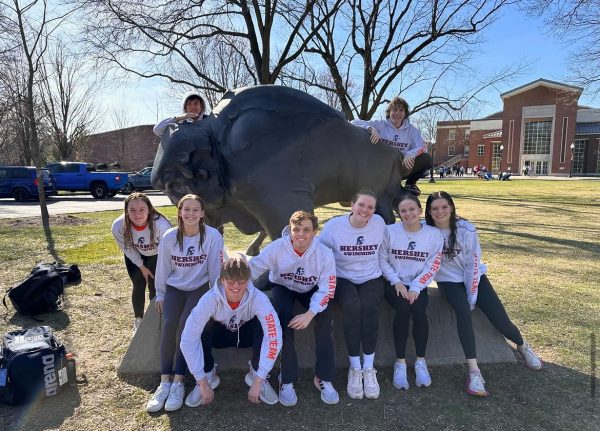Derry Environmental Action Committee volunteers exterminate invasive vines in community garden
A sign with photos of monarch butterflies is posted outside of the Monarch Butterfly and Pollinator Conservation Area garden in Hershey. The garden was established to improve pollination from monarch butterflies and bees. (Broadcaster/Ashley Bu)
October 19, 2022
As the autumn season approaches, people find themselves cleaning up leaves in their yards. Members of the Derry Environmental Action Committee went even further and organized a clean-up in the Monarch Butterfly & Pollinator Conservation Area to tackle the ongoing issue of invasive species.
The Derry Environmental Action Committee(DEAC), is a non-profit organization run by volunteers of all ages in the Hershey community. They strive to address the many environmental issues facing Derry Township.
On September 10th of 2022, they organized a clean-up of the Monarch Butterfly & Pollinator Conservation Area located in Hershey.
In recent years, there has been a huge decline in monarch butterflies, so DEAC member Sandy Ballard proposed a renovation of the unused land into a pollinator garden. The area is now home to several plants beneficial for pollination, such as milkweed and black-eyed susans, but it is also infested with harmful invasive vines.
“The things that we planted first, or not so recently, are getting covered by invasive vines called crown vetch,” Ballard said. Ballard was a proponent of starting the conservation area in 2012.
Crown vetch is an example of an invasive species that originated in the continents of Europe, Asia, and Africa, according to the Pennsylvania Department of Conservation and Natural Resources. The species grows as a thicket over native plant species, preventing them from growing any further. In turn, this inhibits the ability for native wildlife to obtain their necessary resources.
“We have to go back periodically and clean things out so that the good plants have a chance to keep growing,” Ballard said
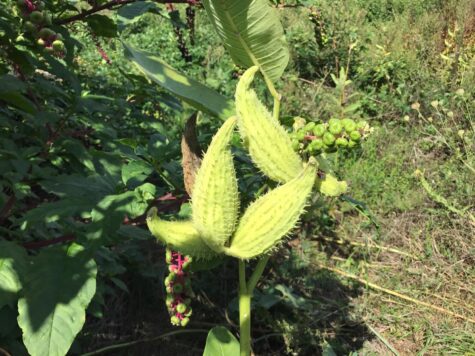
The DEAC also holds meetings on the third Saturday of each month in the Hershey Public Library to discuss local environmental issues and their possible solutions. Their most recent meeting was held on the 17th of September.
In the meeting, they discussed a potential tree planting event using 20 trees from a grant. The volunteers planned to plant them in November.
The trees are going to be planted between the road and sidewalk. Ballard explained this is important because it will help prevent a “heat island. Heat island occur in urban areas that have a higher temperature than its surroundings because of roads and buildings absorbing and re-emitting heat, according to the United States Environmental Protection Agency. By planting the trees near roads, the road will be shaded, which will lead to lower temperatures.
In the future, the DEAC plans to obtain a grant that will be used to fund an environmental education workshop about the proper maintenance of street trees.

